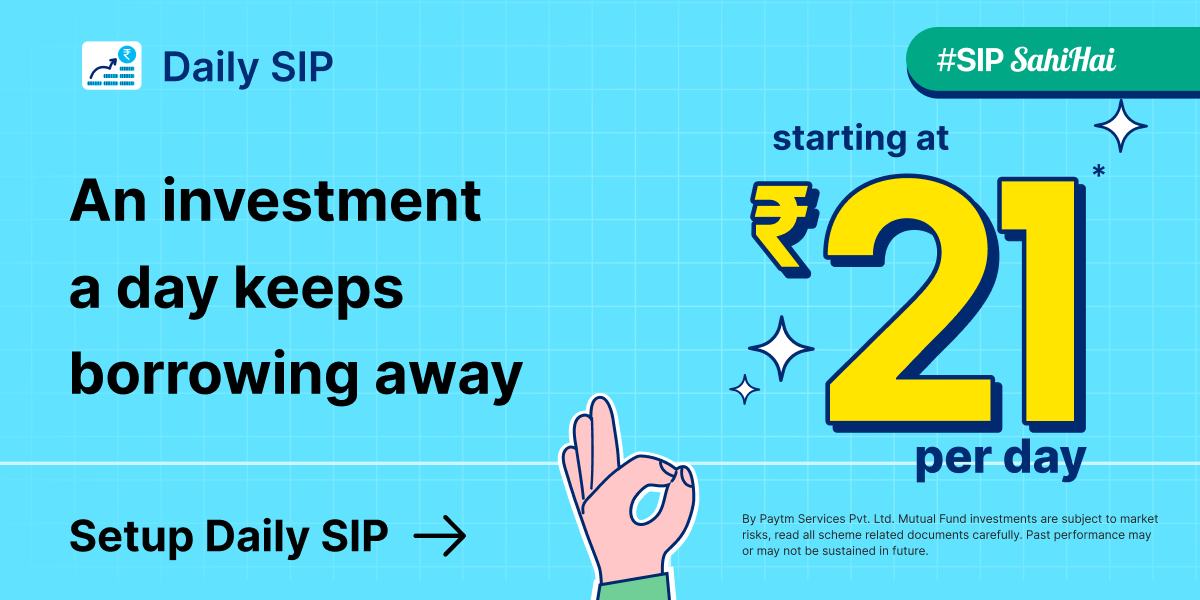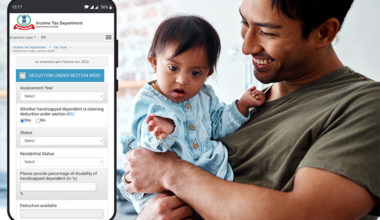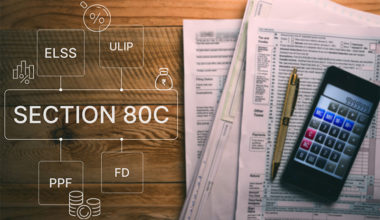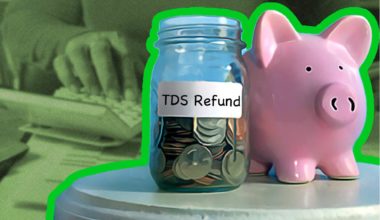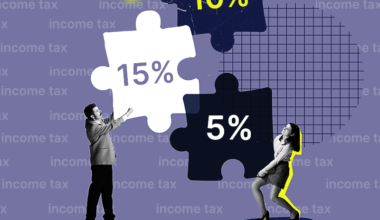Income tax deductions are important for saving money and planning finances. Sections 80C to 80U of the Indian Income Tax Act offer various deductions that can help reduce taxable income. These sections cover a wide range of expenses, investments, and contributions that qualify for deductions.
Table of Contents Show
By taking advantage of these deductions, individuals and businesses can save money and achieve their financial goals. In this article, we will discuss the provisions of Sections 80C to 80U and explain the different expenses, investments, and contributions that qualify for deductions.
Section 80C: Tax-Saving Deductions
Section 80C is a tax-saving opportunity that allows taxpayers to reduce their taxable income. Under this section, individuals and Hindu Undivided Families (HUF) can claim deductions of up to Rs. 1,50,000 through various investments and expenses. Here are some eligible options:
- PPF (Public Provident Fund)
- ELSS (Equity Linked Savings Scheme)
- NSC (National Savings Certificate)
- ULIP (Unit Linked Investment Plan)
- SCSS (Senior Citizen Savings Scheme)
- Life insurance premium payments
- Tuition fees for up to two children
- Tax-saving fixed deposits
Please note that the list above includes some eligible options, but there may be more available. It’s a good idea to consult a tax professional or refer to the Income Tax Act for complete information and guidance.
Section 80CCC: Tax Deductions for Pension Plans
Section 80CCC is a part of the Income Tax Act that offers tax deductions on pension plans. Individuals can claim deductions of up to Rs. 1.5 lakh per year for the premium paid towards any annuity pension plan, whether from a public or private insurer.
However, it’s essential to remember that the pension received from the annuity plan, including interest and bonus, is taxable in the year it is received.
Section 80CCD: Tax Deductions for Pension Schemes
Section 80CCD is all about tax deductions for pension schemes provided by the Central Government. Here’s what you need to know:
- Section 80CCD(1): Employees can claim deductions for the amount they contribute to a pension scheme. The deduction limit is 10% of their salary or 20% of their gross total income, whichever is lower. The maximum deduction allowed is Rs. 1.5 lakh.
- Section 80CCD(2): Employers can also get tax benefits for their contributions to the pension scheme. The deduction is limited to 10% of the employee’s salary, including basic pay and dearness allowance.
- Section 80CCD(1b): An additional deduction of Rs. 50,000 is available on top of the Rs. 1.5 lakh limit mentioned in Section 80CCD(1). This deduction applies to contributions made to the National Pension Scheme (NPS) and the Atal Pension Yojana (APY).
Section 80CCF and Section 80CCG: Tax Deductions for Investments
Section 80CCF and Section 80CCG offer income tax deductions for specific investments. Here’s a simple breakdown:
- Section 80CCF: You can get tax deductions of up to Rs. 20,000 for investing in long-term infrastructure bonds notified by the government. These bonds aim to boost investments in the infrastructure sector.
- Section 80CCG: This section provides tax deductions for investments in government-notified equity savings schemes. Eligible individual residents can claim deductions equal to 50% of their investment, up to a maximum of Rs. 25,000. The purpose is to encourage investments in specified equity schemes and support retail investors.
Note: The sections 80CCF and 80CCG, which previously allowed tax deductions for investments, have been discontinued and are no longer applicable.
Section 80D of the Income Tax Act allows individuals to claim deductions on health insurance premiums. Here are the key points:
- You can claim deductions for premiums paid for health insurance policies for yourself, your spouse, children, and parents.
- The deduction limit depends on the age of the insured individual and the type of policy.
- For individuals below 60 years of age, the maximum deduction is Rs. 25,000 for the premium paid for themselves, their spouse, and children. An additional deduction of Rs. 25,000 is allowed for the premium paid for their parents.
- If the individual or parent is above 60 years of age, the maximum deduction limit increases to Rs. 50,000.
- If both the individual and parents are above 60 years of age, the maximum deduction limit is Rs. 1,00,000.
- Additionally, an individual can claim an extra deduction of Rs. 5,000 for preventive health check-ups for themselves, their spouse, children, and parents.
Section 80DD and Section 80DDB: Disability and Medical Expense Deductions
Section 80DD and Section 80DDB are provisions in the Income Tax Act that provide deductions for disability and medical expenses. Here’s what you need to know:
Section 80DD: This section allows individuals to claim deductions for expenses incurred on the medical treatment and maintenance of a dependent with a disability. The deduction amount depends on the severity of the disability:
- If the disability is between 40% and 80%, a fixed deduction of Rs. 75,000 can be claimed.
- If the disability is 80% or more, a higher deduction of Rs. 1,25,000 can be claimed.
Please note that the dependent must be a spouse, child, parent, or sibling of the individual.
Section 80DDB: This section provides deductions for medical expenses incurred on specified diseases for the individual or their dependents. The deduction amount is limited to the actual amount spent or a fixed limit, whichever is lower. The fixed limit is:
- Rs. 40,000 for individuals below 60 years of age.
- Rs. 1,00,000 for individuals who are 60 years of age or above.
The specified diseases include ailments like cancer, chronic kidney disease, Parkinson’s disease, etc.
Section 80E: Tax Deductions for Education Loan Interest
Section 80E of the Income Tax Act provides tax deductions for the interest paid on education loans. Here are the key points:
- Individuals can claim deductions for the interest paid on loans taken for higher education purposes for themselves, their spouse, children, or for a student for whom they are a legal guardian.
- The deduction is available for loans taken for pursuing higher education in India or abroad.
- There is no maximum limit on the deduction amount, meaning you can claim the entire interest paid as a deduction.
- The deduction can be claimed for a maximum of 8 years or until the interest is fully repaid, whichever is earlier.
Note: The principal loan amount is not eligible for deductions, only the interest component. Additionally, this deduction is applicable only for loans taken from financial institutions or approved charitable institutions.
Section 80EE: Additional Deduction for Home Loan Interest
Section 80EE of the Income Tax Act provides an additional deduction for home loan interest. Here are the key points:
- This deduction is available to individuals who are first-time homebuyers.
- The deduction is applicable for interest paid on home loans taken between April 1, 2016, and March 31, 2017.
- The maximum deduction limit is Rs. 50,000 per year.
- To be eligible for this deduction, the loan amount should not exceed Rs. 35 lakh, and the value of the property should not exceed Rs. 50 lakh.
- The individual should not own any other residential property on the date of the loan sanction.
It’s important to note that this deduction is in addition to the deduction available under Section 24(b) for home loan interest. The deduction under Section 80EE is subject to specific conditions and limits as specified in the Income Tax Act.
Section 80EEB: Tax Deductions for Electric Vehicle Loan Interest
Note: Section 80EEB of the Income Tax Act, which previously provided tax deductions for interest paid on loans taken for the purchase of electric vehicles, is no longer applicable. This means that you cannot claim any tax benefits under Section 80EEB for the interest paid on electric vehicle loans.
Section 80G: Tax Deductions for Charitable Donations
Section 80G is a part of the Indian Income Tax Act that helps people save money on taxes when they donate to charitable organizations. It allows individuals and organizations to deduct the amount they donate from their taxable income. This means that if you donate to a registered charity, you can reduce the amount of tax you need to pay. The government has this provision to encourage people to support good causes and help those in need.
Section 80GG: Tax Deduction for House Rent Expenses
Section 80GG offers a way to reduce your tax obligations if you are paying rent for your accommodation but do not receive House Rent Allowance (HRA). To qualify for this deduction, you must not own a house in your name, your spouse’s name, or your children’s name, or as a member of a Hindu Undivided Family (HUF) in the city where you work. Moreover, you should be living in a rented property and regularly paying rent.
Under Section 80GG, you can claim the lowest of the following amounts as a deduction:
- Rs. 5,000 per month.
- 25% of your total income.
- Rent paid minus 10% of your income.
Section 80GGB: Tax Deduction for Contributions to Political Parties by Indian Companies
Section 80GGB is a part of the Indian Income Tax Act that allows Indian companies to claim a tax deduction for the donations they make to political parties. This means that if a company contributes money to a registered political party, they can reduce the amount of tax they need to pay. The government has this provision to encourage corporate involvement in the democratic process by providing tax benefits for such contributions. It is important to note that this deduction is only applicable to companies and not to individuals.
Section 80GGC: Tax Deduction for Contributions to Political Parties by Individuals
Section 80GGC is a provision in the Indian Income Tax Act that allows individuals to claim a tax deduction for the contributions they make to political parties. This means that if you donate money to a registered political party, you can reduce the amount of tax you need to pay. The deduction amount is subject to certain limits and conditions. The purpose of this provision is to encourage individuals to participate in the political process and support political parties of their choice. It is important to note that this deduction is only available to individuals and not to companies or other entities.
Section 80IA: Tax Benefits for Specific Enterprises
Section 80IA of the Indian Income Tax Act provides tax benefits to certain businesses in sectors like infrastructure, power, telecom, and industrial parks. It allows eligible enterprises to deduct a portion of their taxable income for a specific period, encouraging investment and economic development. Meeting certain criteria and complying with regulations are necessary to avail these tax benefits.
Section 80J: Tax Deductions for Industrial Establishments, Hotels, and Cruises
Section 80J within the Income Tax Act offers tax deduction provisions for certain cases involving new industrial establishments, hotels, and cruises.
This particular section is further divided into two subdivisions, namely 80JJA and 80JJAA. Subdivision 80JJA imposes restrictions on the profits generated by industrial establishments that are involved in the collection and processing of biodegradable waste. Meanwhile, under Section 80JJAA, specific businesses have the opportunity to claim tax deductions on the wages they pay to newly recruited workers.
Section 80LA: Tax Deductions for Offshore Banking and International Financial Service Centers (IFSC)
Section 80LA of the Indian Income Tax Act provides tax deductions for entities operating in Offshore Banking Units (OBUs) and International Financial Service Centers (IFSCs). Eligible entities can claim a deduction equal to 100% of the profits and gains derived from specified offshore banking and financial activities for a period of five consecutive assessment years. The purpose of this deduction is to promote the establishment and growth of OBUs and IFSCs, attracting foreign investment and encouraging international financial services in India.
Section 80P: Tax Deductions for Cooperative Societies
Section 80P of the Indian Income Tax Act provides a tax deduction specifically for certain cooperative societies engaged in agricultural activities.
Under Section 80P, deductions are available to primary agricultural credit societies and primary cooperative agricultural and rural development banks. These deductions apply to the income generated from agricultural activities carried out by these cooperative societies.
It is important to note that Section 80P does not provide deductions for non-agricultural cooperative societies or other types of cooperative societies engaged in activities other than agriculture.
For more specific details and eligibility criteria regarding the deductions under Section 80P, it is recommended to consult with a tax professional or refer to the provisions of Section 80P in the Indian Income Tax Act.
Section 80QQB provides tax deductions for royalty income earned by resident Indian authors. Under this section, eligible resident Indian authors can claim a deduction on the income received as royalty for their literary, artistic, or scientific works.
The deductions allowed under Section 80QQB are as follows:
- Deduction Amount: The deduction is available for up to Rs. 3 lakh or the actual royalty income, whichever is lower.
- Eligible Works: The deduction applies to income received from the publication of books, including novels, stories, plays, poetry, and other literary, artistic, or scientific works.
It is important to note that the deduction under Section 80QQB is available only to individual resident Indian authors and not to non-resident authors or authors who earn income through other means.
Section 80RRB: Tax Deduction for Royalty Income
Section 80RRB provides a tax deduction for royalty income earned by a resident individual who is a patentee. The deduction is available for income received as royalty or any other consideration in respect of a patent registered on or after April 1, 2003.
The deductions allowed under Section 80RRB are as follows:
- Deduction Amount: The deduction is available for the amount received as royalty or consideration for the use of a patent. The deduction is subject to a maximum limit of Rs. 3 lakh.
- Eligibility: To claim the deduction under Section 80RRB, the individual must be a resident of India and should have registered a patent under the Patents Act, 1970.
It is important to note that the deduction under Section 80RRB is available only to individual patentees and not to non-resident patentees or those who earn income through other means.
Section 80TTA and Section 80TTB: Tax Deductions for Interest Income
Section 80TTA and Section 80TTB of the Indian Income Tax Act provide tax deductions for interest income earned by individuals and senior citizens respectively.
- Section 80TTA: This section provides a deduction on interest income earned from savings bank accounts, post office savings accounts, or cooperative society savings accounts. The deduction allowed under Section 80TTA is up to Rs. 10,000. This deduction is available to individuals and Hindu Undivided Families (HUFs).
- Section 80TTB: This section was introduced specifically for senior citizens. Under Section 80TTB, senior citizens can claim a deduction on interest income earned from deposits with banks, co-operative banks, and post office deposits. The deduction allowed under Section 80TTB is up to Rs. 50,000. This deduction is available to individuals who are resident senior citizens.
It is important to note that these deductions are applicable only to interest income earned and not to any other sources of income. Additionally, both Section 80TTA and Section 80TTB have specific eligibility criteria and conditions that need to be met in order to claim the deductions.
Section 80U: Tax Deductions for Individuals with Disabilities
Section 80U of the Indian Income Tax Act provides tax deductions for individuals with disabilities. Under this section, eligible individuals can claim a deduction on their taxable income if they meet certain criteria related to their disability.
The deductions available under Section 80U are as follows:
- Disability Percentage: To qualify for the deduction, an individual must have a disability of at least 40%. The disability percentage is determined by a certified medical authority.
- Deduction Amount: The deduction amount varies based on the severity of the disability. Individuals with a disability percentage between 40% and 80% can claim a deduction of Rs. 75,000. Individuals with a disability percentage exceeding 80% can claim a higher deduction of Rs. 1,25,000.
It is important to note that the deduction under Section 80U is available to resident individuals with disabilities and not to non-resident individuals. Additionally, the disability should be certified by a medical authority specified by the government.
Maximum Allowed Tax Deduction Limits Under Section 80C
| Section | Description | Maximum Deduction Limit |
|---|---|---|
| 80C | Tax-Saving Deductions | Rs. 1.5 lakh |
| 80CCC | Tax Deductions for Pension Plans | Rs. 1.5 lakh |
| 80CCD | Tax Deductions for Pension Schemes | 10% of salary or 20% of gross total income, up to Rs. 1.5 lakh |
| 80CCF and 80CCG | Tax Deductions for Investments | Discontinued |
| 80D | Health Insurance Premium Deductions | Rs. 25,000 (Rs. 50,000 for senior citizens) |
| 80DD | Disability Expense Deductions | Rs. 75,000 (Rs. 1.25 lakh for severe disabilities) |
| 80DDB | Medical Expense Deductions | Rs. 40,000 (Rs. 1 lakh for senior citizens) |
| 80E | Education Loan Interest Deductions | Entire interest paid |
| 80EE | Additional Deduction for Home Loan Interest | Rs. 50,000 |
| 80EEB | Electric Vehicle Loan Interest Deductions | Rs. 1.5 lakh |
| 80G | Charitable Donation Deductions | Varies |
| 80GG | House Rent Expense Deductions | Least of: Rs. 5,000 per month, 25% of total income, or rent paid minus 10% of total income |
| 80GGB | Contributions to Political Parties by Indian Companies | No maximum limit |
| 80GGC | Contributions to Political Parties by Individuals | No maximum limit |
| 80IA | Tax Benefits for Specific Enterprises | Varies |
| 80J | Tax Deductions for Industrial Establishments, Hotels, and Cruises | Varies |
| 80LA | Tax Deductions for Offshore Banking and International Financial Service Centers (IFSC) | Varies |
| 80P | Tax Deductions for Cooperative Societies | For a consumer co-operative society, the maximum deduction available is up to Rs. 1,00,000.For any other type of co-operative society, the maximum deduction available is Rs. 50,000. |
| 80QQB | Royalty Income Deductions for Indian Authors | Rs. 3 lakh |
| 80RRB | Royalty Income Deductions | Rs. 3 lakh |
| 80TTA | Interest Income Deductions | Rs. 10,000 |
| 80TTB | Interest Income Deductions for Senior Citizens | Rs. 50,000 |
| 80U | Deductions for Individuals with Disabilities | Rs. 75,000 |
Disclaimer: Nothing on this blog constitutes investment advice, performance data or any recommendation that any security, portfolio of securities, investment product, transaction or investment strategy is suitable for any specific person. You should not use this blog to make financial decisions. We highly recommend you seek professional advice from someone who is authorised to provide investment advice.
What are Sections 80C to 80U of the Indian Income Tax Act?
What is the maximum deduction limit under Section 80C?
Who is eligible to claim deductions under Section 80C?
What are some eligible investments and expenses under Section 80C?
Are there additional options available for deductions under Section 80C?
What are the provisions of Section 80CCC?
Is the pension received from an annuity plan taxable under Section 80CCC?
What are the provisions of Section 80CCD?
- Section 80CCD(1): Allows employees to claim deductions for the amount they have contributed towards a pension scheme, with a maximum limit of Rs. 1.5 lakh or 10%/20% of salary/gross total income.
- Section 80CCD(2): Allows employers to avail tax benefits for their contributions to the pension scheme, limited to 10% of the employee’s salary.
- Section 80CCD(1b): Allows an additional deduction of Rs. 50,000 over and above the limit specified in Section 80CCD(1) for contributions made towards the National Pension Scheme (NPS) and the Atal Pension Yojana (APY).




